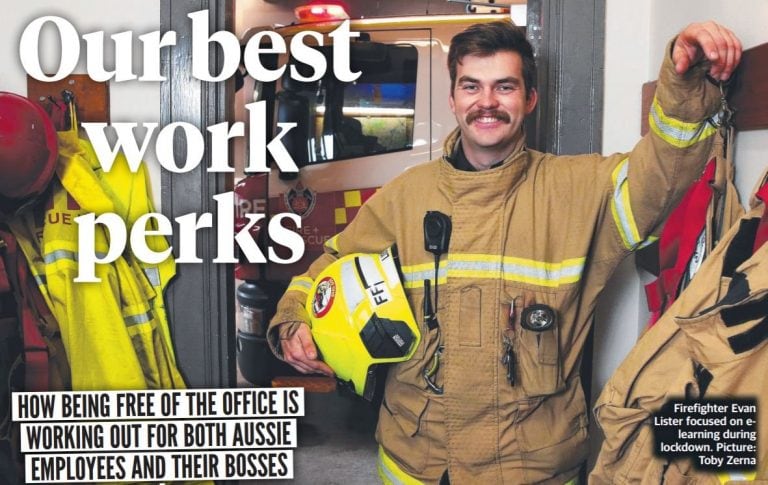How to stay true to your values during a crisis
Survival at any cost? How to stay true to your values during a crisis and define your leadership forever.
Earlier today I spoke to my travel agent, Alison*. Unsurprisingly, Alison is worried about her job given there is not much demand for travel in a locked-down world.
But, even accounting for this she seemed extremely anxious and down-beat. Far away from her normal positive-self, she was clearly struggling. “How are you coping?” I asked. “I’m ok” she lied.
Alison is exceptionally good at building trust and making you feel like she’s on your side. As one of the consistently top performers in her company over many years, she has been transferred onto a special “taskforce” to assist Australians stranded around the world get back home. Just yesterday she helped an Aussie family stuck in Morocco catch two local buses and get onto the last train out of Marrakech to catch the last flight to Algeria, to connect with the last flight to Qatar, to catch the last seat on the last passenger flight to Sydney.
“Wow! That sounds like an incredible challenge and it must be a great feeling to be helping people.” I blurted out. “hmmm. Yeah, I amazed even myself with my skills and I love to help people” she replied. “But I have been ordered by my finance team not to give people refunds as normal unless I hold them to a small-print, $300 per person per flight cancellation charge.” She opened up about how she was feeling: “It’s just so tough. It goes against all my values to charge families when they are facing their hardest times. I’m waking up in the night with pains in my chest and dread about being forced to betray my values and the people who need my help”. She was fighting to contain tears.
This story is being repeated right now across many industries within companies who are fighting for survival. It’s a perfect example of a crisis of meaning at work caused by a disconnection between what must be done to survive and staying true to what makes us who we are. In my “Bubbles of meaning” framework, authenticity, achievement, and making an impact are three of the seven components that make work feel meaningful. It is in the challenges we face that these ‘bubbles’ are tested most critically and meaning is created for better or worse. The ironic part of Alison’s story is that her achievement and impact bubbles were hugely elevated. Saving people from Morocco was an opportunity to feel awesome about her work despite the uncertainty for her job security. Instead, Alison’s Authenticity bubble was popped trashing any chance of new positive meaning. This had immediate results: Apart from the customer loyalty that is being eroded, Alison feels utterly disconsolate. She is miserable at the thought of being forced to go against all the values that made her a fantastic Relationship Manager in the first place. This is what meaninglessness at work feels like and your employee experience doesn’t need to be like this, even during a crisis.
Nearly all of us are experiencing stress from the uncertainty and panic wreaked by COVID-19. Employees mostly understand that a lot of employers are in a very tough position. They understand that your top leadership priority right now is, quite rightly, your duty to ensure their companies stay afloat. You also have a hugely important role to play in how your employees feel about what is happening and they are hyper-vigilant about how you treat them when they are scared and most vulnerable. Your employees are not experiencing the crisis, they are experiencing your leadership of the crisis and they will remember it well after it passes. This is a chance to demonstrate what you stand for as a leader, bring people together around a common purpose, and give new meaning to your relationship with your team. By staying true to your values you can earn respect and loyalty that stretch far beyond the impacts of corona-virus and define your leadership forever.
Here are some questions that may help you to lead through this.
- When this crisis passes how would I like my leadership through it to be defined?
- Have I genuinely considered the impacts of my decisions on others and taken steps to address those directly?
- When I have bad news to deliver what is the best way I can do it? (some tips: calmly, clearly, without delay, and with compassion)
- Is there another way to do what must be done to survive without compromising my values? (ie in the case of the travel agent could they have offered an incentive to retain credit rather than a punishment for not?)
- When asking my employees to do something, can I honestly say that I would not be aggrieved if someone asked me to do the same thing?
- What can I do to help my team create new positive meaning out of the current situation?
If you would like more information on how to “Lead with Meaning”, please sign up to our complimentary newsletter (below) where we will be posting more tips and keeping you informed of forthcoming webinars. Alternatively, please give us a call. We’d be more than happy to talk through any challenges or questions you have.
* Names have been changed for the purposes of confidentiality.
Author: Ross Reekie






